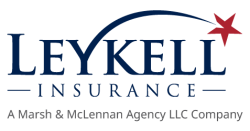
Why Gibson Guitars’ Risky Moves Lead to Bankruptcy
The Gibson Guitars Bankruptcy, and Why It Takes More Than Legacy to Run a Business
Gibson Guitars recently joined the ranks of century-old companies to learn all too quickly new technologies without a proper strategy can kill you. Long known for its guitar work that has drawn the attention and embrace from some of the music industry’s finest — Eric Clapton, Pete Townshend and many others — Gibson forayed into the consumer electronics market, thinking its brand name would be good enough to make it an instant player among a sea of already-quality products from manufacturers that knew what they were doing.
A Path Forward
Gibson didn’t so much “forget where it came from,” as it was still making guitars, but it sunk a lot of money into a new marketplace and expected to be an immediate player. About $500 million of debt later, and the company has had to file for bankruptcy restructuring.
Fortunately, as reported in a recent ArsTechnica piece, there may be some light at the end of the tunnel for Gibson’s classic business model. With a promise of “$135 million of debtor-in-possession financing from existing noteholders,” reports the Nashville Business-Journal, the company will have “the liquidity necessary to maintain its operations in the ordinary course during its reorganization proceedings.”
Gibson will, of course, need to rid itself of the Gibson Innovation division as it moves through the bankruptcy process. The move leaves a clear lesson for the many suppliers and companies that did business with Gibson in this capacity.
Don’t Rely Solely on Legacy
Doing business with a company that is 116 years old should provide adequate peace of mind. But if you rely solely on legacy, it can blind you to certain questions about the company you should be asking, namely:
- What’s the business you’re entering into with them?
- Do they have a history of experience and expertise in that field?
- How large is the market?
- Who is their competition?
- Have they ever flirted with bankruptcy in the past?
Asking these questions ahead of time would have given Gibson Innovation’s vendors and suppliers a little more reason for pause. For starters, Gibson made guitars. The company’s experience with consumer electronics in trying to make “music lifestyle” products was nonexistent.
Secondly, they were entering a pretty saturated market filled with players who were way better at it already — Apple, Bose, Samsung, and several others. The spend to compete with the likes of players like that who’ve already figured out where their efficiencies lie was simply too great.
Lastly, this isn’t Gibson’s first brush with bankruptcy. In 1986, it narrowly avoided filing, and that trouble was focused squarely on its traditional business model. Meaning, if they’ve had troubles in the past at what they’re good at, how could they possibly avoid it when dealing with a new market?
All these questions were in play from the beginning. Gibson knew it was taking a risk. That’s business. But it’s also business that those risks don’t always pay off.
Companies Must Protect Themselves, No Matter What
Smaller companies that deal with large, established organizations like Gibson Guitars (in this case, Gibson Innovation) must take certain precautions to avoid being left out in the cold by a bankruptcy reorganization.
One of the first things to do is to purchase credit insurance or trade credit insurance as it’s sometimes called. This type of policy protects a business from non-repayment of debt. If you’re on the creditor end of a bankruptcy proceeding, it’s possible you’ll never see a dime of what’s coming to you, or you’ll have to settle for a small fraction of what is owed.
Either way, your books end up taking massive losses.
Paying your credit insurance premium every payment period ensures that you’ll see more of the money that’s coming to you regardless of the faulty partner’s financial report cards. It’s also helpful in other regards such as:
- Eliminating bad debt: the longer you’re in business, the more comfortable you become with who you can and can’t trust. Credit insurance allows you to “spot-insure” transactions with riskier or more unfamiliar customers, thus ensuring that if something does go wrong, you won’t be taking on debt from the deal.
- Expanding your sales and customer base: when you’re credit-insured, you have more confidence to pursue business opportunities you might otherwise stay away from. If any of Gibson’s vendors had credit insurance, there is a much better chance they won’t be taking on the $500 million in losses from the company’s consumer electronics experiment.
- Getting better financing terms: carrying credit insurance on a business transaction puts you in a better situation when you need to go through a bank for financing. For example, traditional banks will only advance 75-80 percent on receivables. With credit insurance, they’re likely to bump that up to 90 percent and provide a lower interest rate in the process.
- Knowing the financial health of a partner before taking them on: when you deal with Leykell Insurance, we help you gain access to credit checks of customers before you actually do business with them, so you can go into the transaction with a fuller understanding of the risk factors in play.
One last unique benefit of credit insurance is that it can give you the confidence to move into other markets that aren’t typically as accessible, such as international trade deals. No matter how you use it, it places you in a much better position whether a deal works out or not.
Purchase Trustworthy Credit Insurance
Should you decide to enter into an agreement — whether with an established player in a new market or an unproven startup — credit insurance can provide you with the confidence that you need to move forward in the partnership.
Just make sure that you’re buying from a company with a solid reputation and financial backing. At Leykell Insurance, we help customers attain the peace of mind they need to get going. If we can help you in any way, just let us know. We have many years of experience in the industry, and we’re eager to serve.
